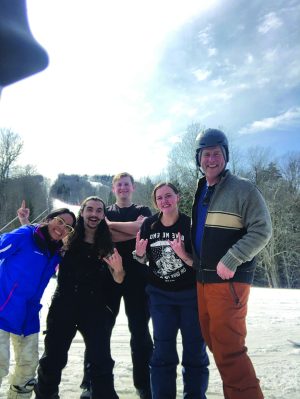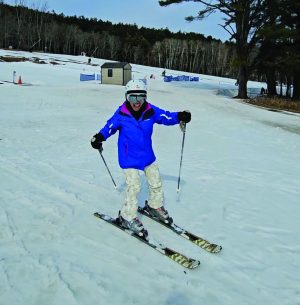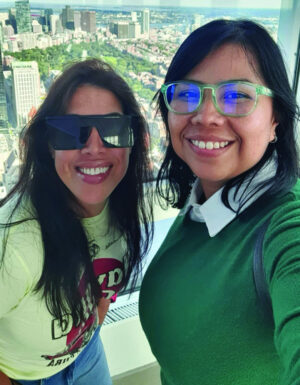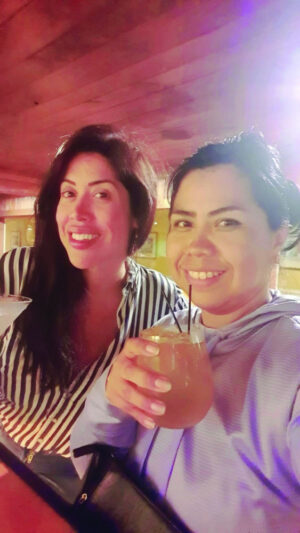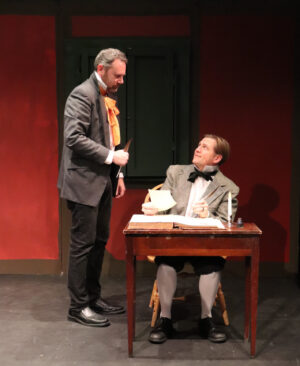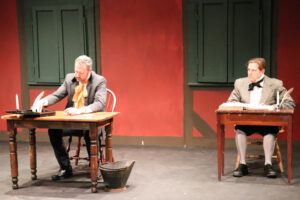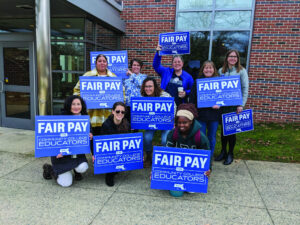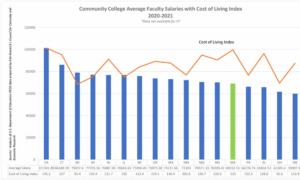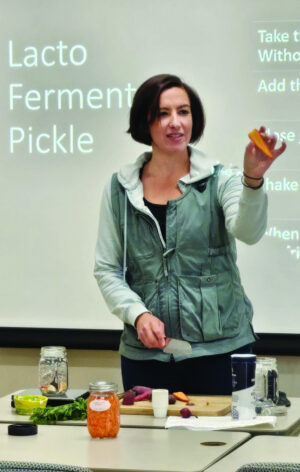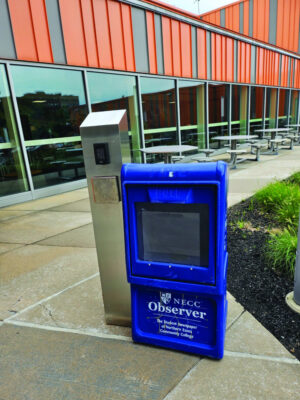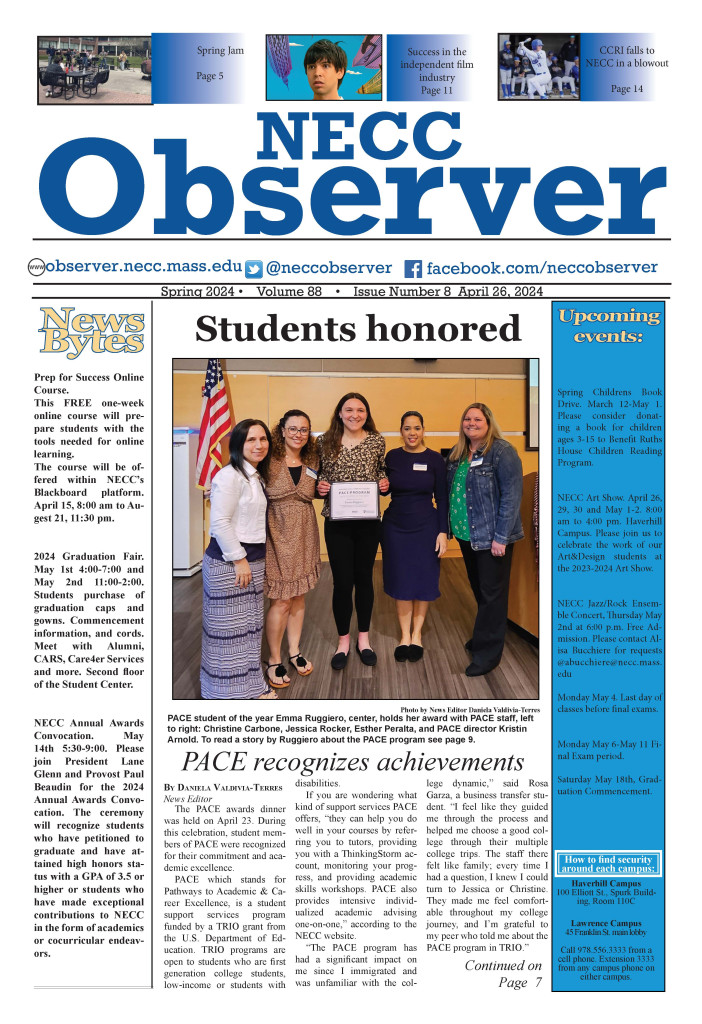
On Thursday, April 25, at 5:00 PM. is the 14 th Phi Theta Kappa Induction Ceremony, in the Lecture Hall, C-Building, on the Haverhill campus.
Mostly known as PTK, it is the world’s largest honor society for community college students. It offers great opportunities to access scholarships “to help you complete your associate, bachelor’s, even master’s degrees,” according to their website, www.ptk.org
It also remarks, PTK “recognizes the academic achievement of college students and provides opportunities for its members to grow as scholars and leaders.”
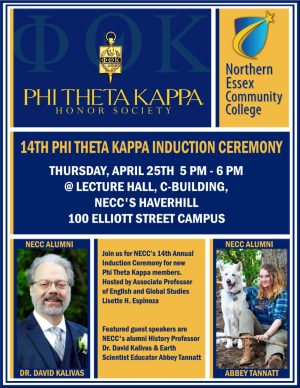 During the next PTK induction, the guest speakers will share their academic journey which started in the NECC classrooms. Although none of them were PTK members, they are familiar with the program, and encourage students to be part of it. Here is a glimpse of their inspiring stories:
During the next PTK induction, the guest speakers will share their academic journey which started in the NECC classrooms. Although none of them were PTK members, they are familiar with the program, and encourage students to be part of it. Here is a glimpse of their inspiring stories:
“NECC set me up for success”
That is what Abigail Tannatt stated. She is an Earth Scientist educator. She is a NECC ‘20 alum in Environmental Science, she transferred to New York SUNY College of Environmental Science and Forestry where she obtained a bachelors degree in environmental science, watershed resources.
While her days as an NECC student, she first joined Student Government Association SGA, as a regular member, and later, she transitioned up to SGA Vice President.
Tannatt said right after high school, she was not sure about what career to pursue as she was passionate about so many things. So, instead of enrolling into a four-year institution for a degree and changing it later, she decided to take her general core courses, at NECC.
“It completely changed my viewpoint on college in a good way,” said Tannatt about her experience as an NECC student. She met peers that were focused about their careers, she met passionate faculty members, and she took as many courses as she could.
Semesters went by, she set her own career goals and discovered her passion for the science.
Tannatt treasures great memories of some courses and professors. The Physical Science course taught by Mark Reinhold was one of those. “I remember I still have my notes from his class, … when I went to college, I did use them. He was a very great lecturer. It’s one of those courses, you’re not just taking notes. You’re actually taking so much information as he’s teaching.”
Another faculty that enhanced Tannatt’s curiosity for science was Professor Mike Cross. “He taught courses with magic. I took Organic Chemistry through him, and he would have a deck of cards and he would do like a magic trick with them while he was to incorporate what we were learning. It was amazing. I took some courses over the summer with him at the Lawrence Campus.”
Among other courses and professors, Tannatt said “I was inspired by my time at Northern Essex by getting involved in student government, by doing clubs and doing organizations that I knew were things that were going to better my resume.” She emphasized that when she was getting ready to transfer to one of the most competitive schools in the nation, “I feel like what I did at Northern Essex really set me up for success as a transfer student.”
Tannatt currently works as a Behavioral Technician helping children who have autism to be more involved with their community, analyzing what are the things that interfere with their ability to go to an elementary school or high school and be successful . “Its amazing our job and it’s very, very rewarding.”
She has plans to continue her education and pursue a doctorate degree in Ireland.
From choppy beginning ‘til’ becoming Dr. David Kalivas.
Dr. Kalivas obtained his associate degree in History at NECC,1977. PTK chapter begun in 2010, so he could not join when he was studying here at NECC. However, he became familiar with PTK when he worked as a history professor in Middlessex Community College MCC. He became the director of the Commonwealth Honors Program which works with PTK students.
“PTK recognizes students for their high GPA and their scholarship. The Commonwealth Honors Program gives students a chance to learn research skills and engage in learning more in depth when they take the honor seminars. One is an honorary recognition, and the other is an Honor Society. I mean an honor program that really helps students hone their skills, both in terms of reading analytically and doing research.
So, I think that’s why it’s a good partnership,” Kalivas stated.
After almost 40 years teaching history at MCC, he retired four years ago. He recalls that he enrolled at NECC right after high school but he was not ready to start his academic journey.
It was 1975, he was 17 years old. “I wasn’t sure 100% what I wanted to do. I had an idea that I wanted to major in history, and maybe someday I’d want to teach history. But, I also had an idea, that maybe I wanted to go to law school, or maybe be a dentist. I had a variety of things [in mind],” Kalivas remembers.
“I was a little young and I had to balance schoolwork or having a good time and like many students, I chose to have a good time. Perhaps more often than I should have, and so I decided, well, maybe this wasn‘t for me,” Kalivas thought.
“My beginning was choppy,” he said. So, he withdrew from NECC, and he went to work in a well-known grocery store. After a year of being a full-time retail employee, he realized he didn’t want to do that for the rest of his life.
“I came back to NECC and that’s when these professors I met in class were very helpful, and I became a very dedicated student. I did very well. And then I transferred,” Kalivas said with a smile.
He said he got very interested in history at NECC because he had “wonderful professors” whom he saves kind memories off. “For the time they took to spend and to engage me and to help me really learn how to learn better.”
Kalivas is grateful to many faculty who taught him courses like U.S. history or government, he said “they really became models for me in many ways.”
Kalivas gave this interview from his home office surrounded by full bookshelves. He seems satisfied by a full life dedicated to study and teaching. He remarked he had fond memories from his time at NECC, “And so, Northern Essex was where I started. That was the beginning point. It helped me get going… It gave me the platform to succeed.”
The former history professor did not hold to pass on his experience to his students. To the ones who were not performing well academically, he always used to say, “This isn’t the time for you. You should take time off, find a job, and if you want to come back, we’ll be here for you.”
In 1978, after his graduation from NECC, he transferred to Suffolk University where he majored in History, continued with a master’s degree at the University of Connecticut, and his PhD in World’s History at Northeastern University. And the rest is history!
How to become a PTK member?
Entry into PTK requires you to have completed 12 credit hours of work at NECC and earned a cumulative GPA of 3.5 or greater. More information about PTK can be found at the event or by contacting Professor Lisette Espinoza at lespinoza@necc.mass.edu.

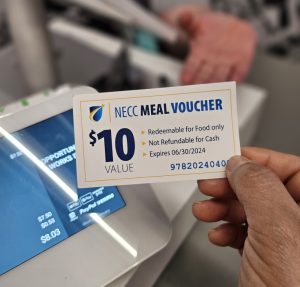
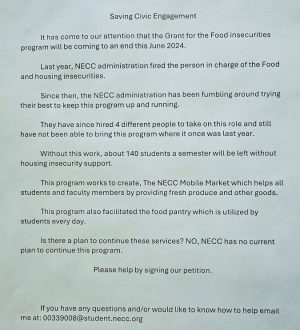
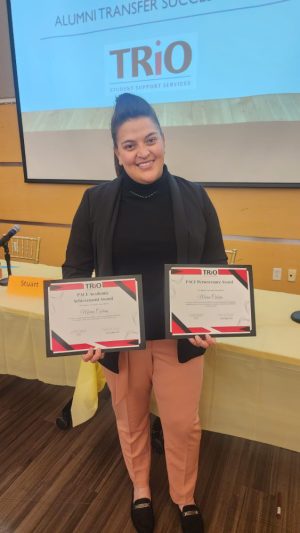
 I thought we would say goodbye as we got around 90. However, when the security officer told us the Student Center was open, Ampa dragged me there to continue, saying “it’s not over yet, we should take it again.” I was content with the high grade achieved. I was tired and cold, but she encouraged me to review the mistakes, take notes and retake the test until reaching the three digits grade. So, we did. On that foggy dark midnight, we left campus, her face illuminated the empty parking lot with full satisfaction of the work well done. Ampa is a natural coach and her willingness to achieve excellence is infectious.
I thought we would say goodbye as we got around 90. However, when the security officer told us the Student Center was open, Ampa dragged me there to continue, saying “it’s not over yet, we should take it again.” I was content with the high grade achieved. I was tired and cold, but she encouraged me to review the mistakes, take notes and retake the test until reaching the three digits grade. So, we did. On that foggy dark midnight, we left campus, her face illuminated the empty parking lot with full satisfaction of the work well done. Ampa is a natural coach and her willingness to achieve excellence is infectious.
